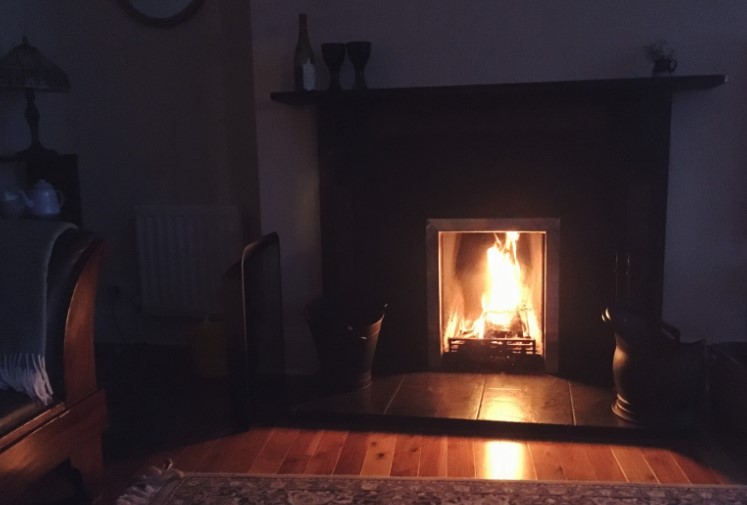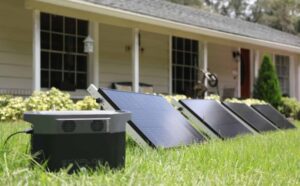
Home fires have continued to increase in the United States. According to the American Red Cross, there were about 17,000 home fires across the country in the first quarter of 2021 alone, affecting over 70,000 people. This represented an increase of 16 percent, or 2,300 more fires, compared to the same period in 2020. The number of people affected increased by almost 9,000.
Most home fires are preventable. It is essential for homeowners and all household members to be fully informed about how to avoid house fires and what to do in case one occurs. Lives depend on this.
Kitchen Safety
The top cause of home fires and home fire injuries, and the second-highest cause of deaths in home fires, is cooking, as reported by the National Fire Protection Association (NFPA). The most common type of cooking that causes fires is frying. A third of fires in the kitchen are also caused by unattended cooking.
Never leave the kitchen while something is cooking on the stove. Always have a lid ready when frying. Heat the oil slowly. If the oil smokes, turn off the burner immediately. Cover the pan with the lid before turning off the burner if the oil catches fire. Do not pour water over the fire because this will just spread it. Keep the lid on for several minutes until the oil cools. If you cannot cover the pan, have everyone get out of the house and call the fire department once you are outside.
Electrical System
The Electrical Safety Foundation International (ESFI) states that 51,000 home fires a year are electrical fires. They cause over 1,400 injuries, almost 500 deaths, and property damage amounting to $1.3 billion.
A third of these are due to faulty electrical distribution systems. More than half of these, or 28,000 home fires annually, are caused by arc faults. This means corroded wires or loose wire connections cause sparks that trigger fires. Electrical receptacles or outlets cause 5,300 fires a year with over 100 injuries and 40 deaths.
It is essential to have an arc-fault circuit interrupter (AFCI) outlet or circuit breaker to prevent fires from arcing faults. This must not be confused with ground-fault circuit interrupters (GCFI), which protect against shock and are also necessary.
Ensure that your entire electrical system is inspected by a certified electrician, especially when adding appliances and equipment. Heavy equipment such as air conditioners and refrigerators need special outlets. Additional electrical connections or upgrades and safety devices may be necessary for the newest technologies.
Regularly check all outlets, electrical plugs, electrical cords, and extension cords. Discoloration around outlets and frayed wires are danger signs that need the attention of an electrician. So are lights that dim or flicker, circuit breakers that trip, and buzzing or sizzling sounds from anywhere in the electrical system. Turn off the entire power and call your electrician immediately.
As a rule, never overload outlets. Ask your electrician to add more outlets as needed. Never use extension cords for portable space heaters, air conditioners, and other major appliances. Even for smaller appliances, use them only temporarily and immediately disconnect them after each use. Ensure that your light bulbs have the same wattage as the light fixture. If there are children at home, use childproof outlets.
Heating Equipment
The NFPA identifies heating equipment such as fireplaces, furnaces, space heaters, and wood stoves as another leading cause of home fires in the U.S. A fourth of these were caused by not cleaning heating equipment. Ensure that all your heating equipment is inspected and cleaned by a professional at least once a year. This includes furnace tune-up services. Certified professionals must install all new or replacement heating equipment. Use only the specific type of fuel indicated by the manufacturer for each piece of equipment.
Heating equipment can cause flammable objects nearby to ignite. Ensure that anything flammable is three feet or more away from any heater, including portable space heaters. Also, ensure that children are kept three feet or more away from heating equipment.
Never leave portable space heaters on when there is no one in the room or when you go to bed. They can cause fires when unattended. Use a sturdy screen for the fireplace to prevent embers from getting into the room. Wait for the ashes to cool down completely before removing them into a bin for disposal.
Be Prepared
According to the ESFI, 65 percent of deaths from home fires occur in homes without smoke detectors or with smoke detectors that are not working. Install smoke detectors with alarms in all rooms of the house and check that these are properly working every month. Also, install fire extinguishers in every room and ensure that every household member knows how to use them.
Create an evacuation plan with at least two routes out of every room in the house. Ensure that there are fire escapes in every room and have everyone practice using these even in the dark.
It is best to avoid a house fire and be prepared for it. This will keep you and your family safe.




